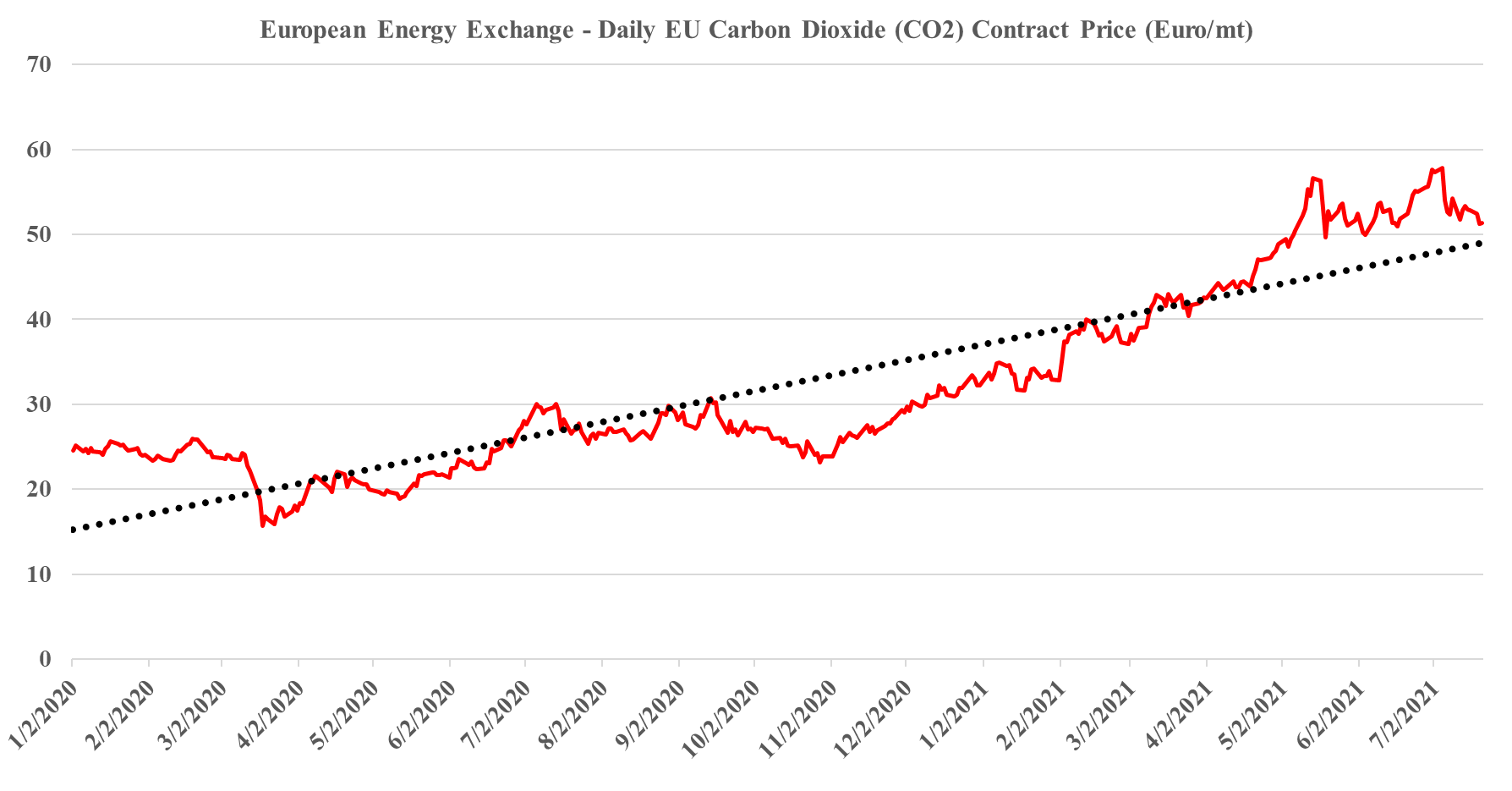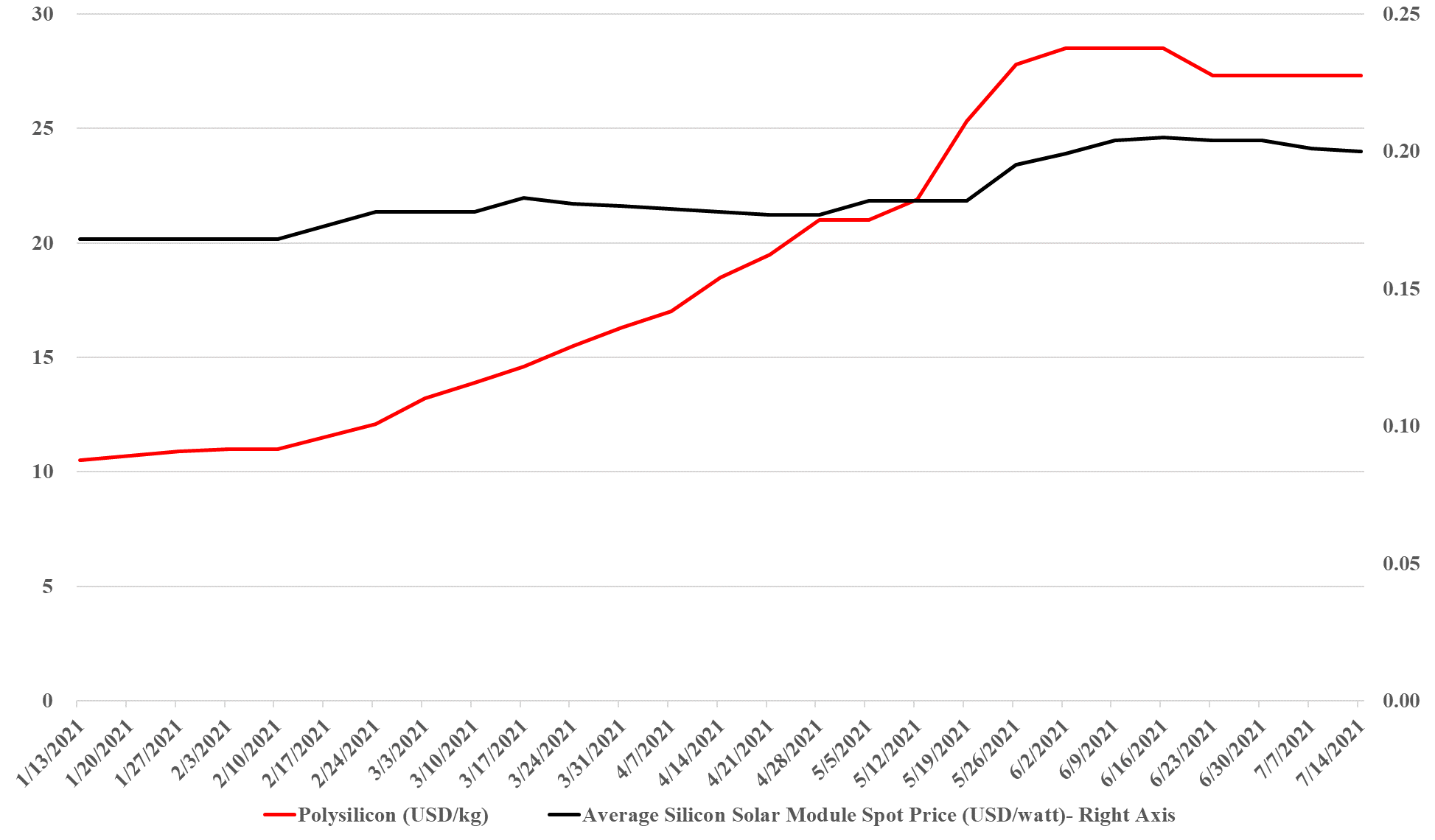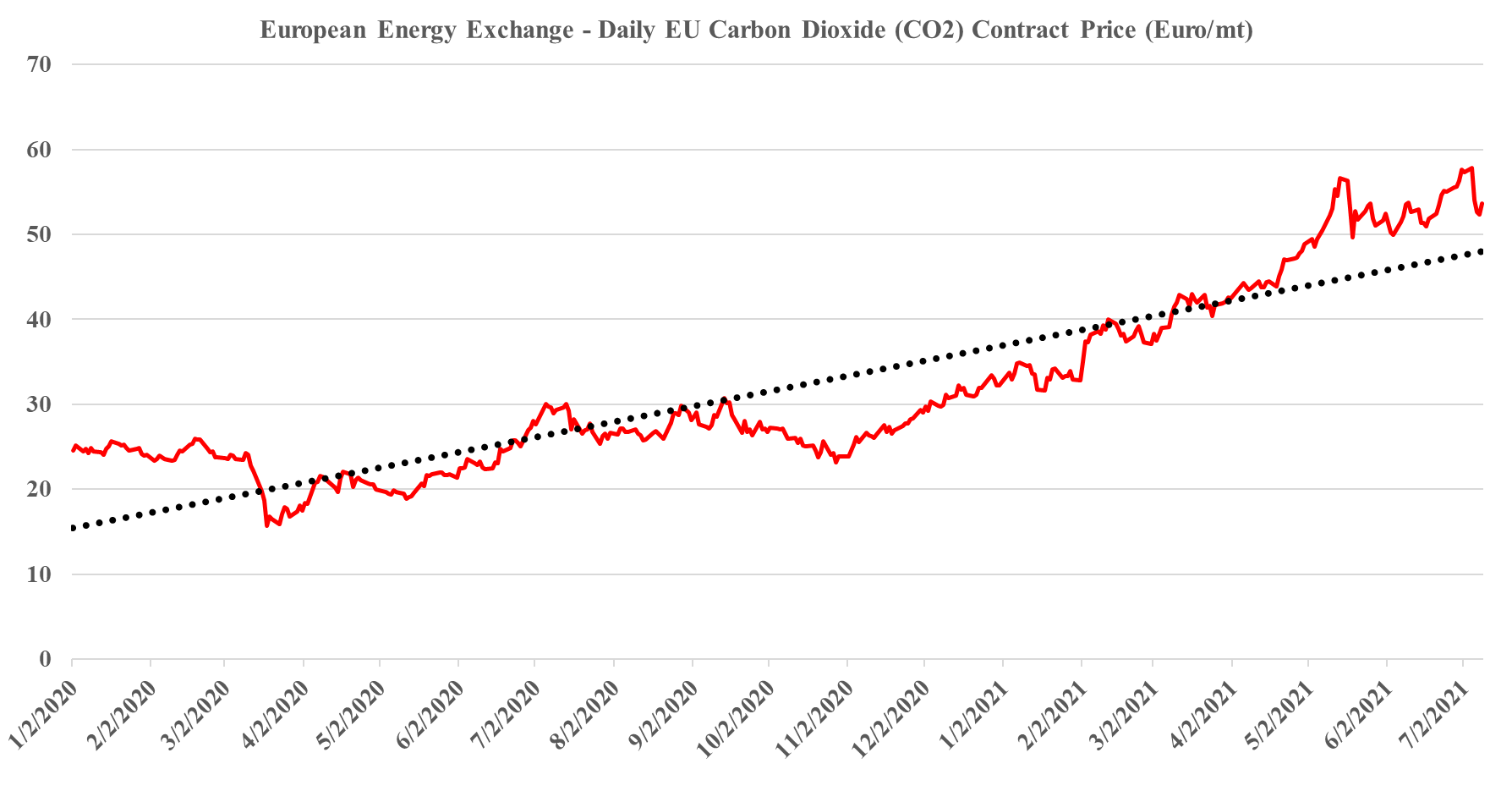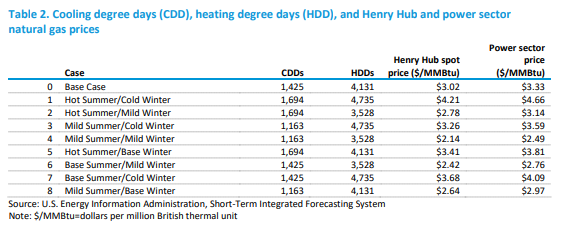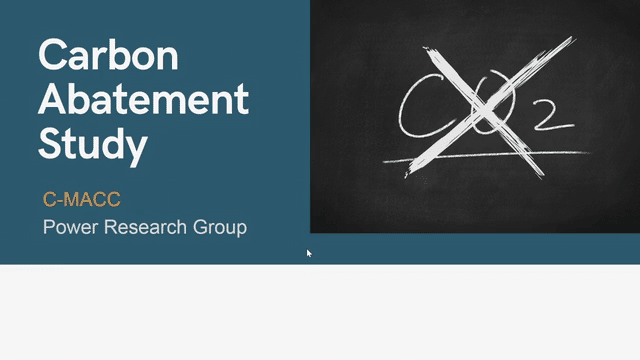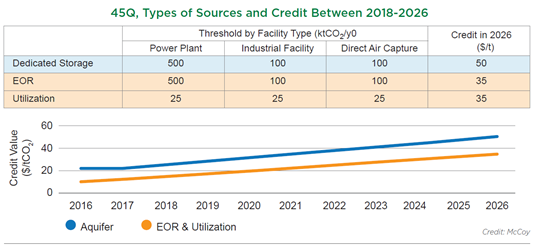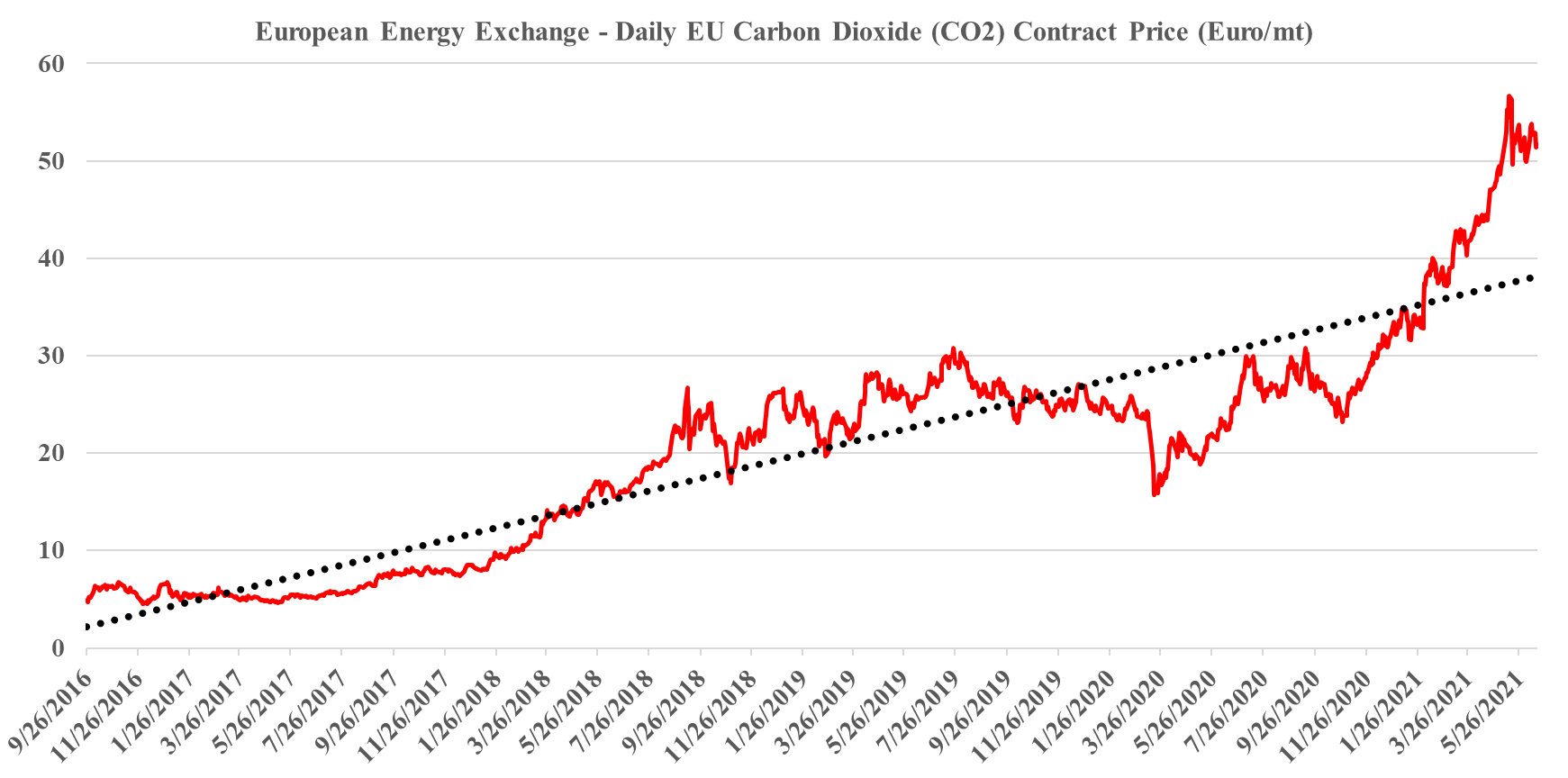In our ESG and climate piece today we focus on Carbon Capture and Sequestration (CCS) and the likely very steep cost curve between the mega projects and those less fortunate. But as we discuss CCS, we should not forget that the World is still not convinced about CCS as part of the solution set for carbon abatement, as the headline linked discusses. The naysayers are focused on the lifeline that CCS offers to the fossil fuel industry, but always fail to offer an economic rationale for the quick elimination of fossil fuels and their replacement by renewables. Few of the proponents of CCS see it as an alternative to a long term path to alternative means of abatement, but all recognize that relying on renewable power investments will likely leave the World with a much larger CO2 footprint from 2030 to 2050 than what could be achievable with CCS – note that the 45Q incentive in the US has a finite lifespan as there is an expectation that eventually CCS will be unnecessary because of fossil fuel replacement. Chevron has not helped the CCS proponents with its missed targets in Australia as it adds fuel to the argument that CCS has not lived up to its potential. While the European carbon price trend has stalled in recent weeks – chart below – the trend remains distinct and it would be foolhardy to ignore the likelihood of prices rising to a level that makes CCS attractive – especially for the mega-projects.
Carbon Capture (If Supported) Will Create Competitive Dislocations
Jul 21, 2021 1:08:19 PM / by Graham Copley posted in ESG, Carbon Capture, CCS, CO2, fossil fuel, carbon footprint, carbon abatement, renewables, European Carbon price, climate
Here Comes The Sun... But Not Cheaply
Jul 16, 2021 1:50:56 PM / by Graham Copley posted in ESG, Hydrogen, Renewable Power, Raw Materials, carbon abatement, solar, solar energy
While the escalation in solar panel material costs has plateaued over the last couple of months, the increase has been enough already to reverse the decline in solar module pricing as we have noted previously (see charts below). While the increase in module pricing is not that significant there are three points to note:
Advanced Recycling: Have We Misjudged You?
Jul 15, 2021 1:26:31 PM / by Graham Copley posted in ESG, Recycling, Climate Change, Plastic Waste, Plastics, Mechanical Recycling, carbon footprint, carbon abatement, chemical recycling, zero waste
The ACC call for 30% recycling of plastics by 2030 emphasizes chemical recycling, and in our ESG and Climate report yesterday we talked about an alternate path for plastics, one that focuses on reducing waste rather than increasing recycling. The product standardization and consumer and municipality waste collection and sorting rigor that would be needed to maximize mechanical recycling are significantly harder to achieve than the changes that would be needed to dramatically increase chemical recycling – i.e. it may be easier and less expensive to get to zero waste than it is to get to maximum recycling. Maybe we are thinking about this wrong, but to change tacks from here the industry would need to demonstrate that plastic waste can be removed, at scale, and then convince the plastic buyers that the path is better. We discuss the possibility in more depth in yesterday’s report.
Pressuring The Banks To Pressure Their Corporate Customers
Jul 13, 2021 12:50:28 PM / by Graham Copley posted in ESG, Climate Change, Emissions, Net-Zero, carbon abatement, Investors, banks, Green bond markets, Repsol
We have talked at length in our dedicated ESG pieces about the inevitable role that investors and financial regulators will play in addressing climate change, and we see more evidence that some of this pressure to conform is going to be pushed down to banks and lenders as standards are set for disclosing financial exposure to high emission industries. The banks will have little choice but to add their weight to the calls for better disclosure and eventually mitigation plans, as it will impact their ability to lend and their ability to defend lending portfolios to their stakeholders. Green bond markets are developing around the world, but still need some definitional oversight and it will be interesting to watch corporate behavior if a significant borrowing cost delta emerges between “green lending” and other lending – it might be a lot cheaper to get debt focused on net-zero related projects than expansion projects and it was interesting to note that Repsol’s announcement (linked here) talks about carbon abatement (in general terms) as part of the investment in Portugal.
Carbon Pricing May See Several Sources Of Volatility
Jul 9, 2021 1:02:30 PM / by Graham Copley posted in ESG, Climate Change, Carbon, Carbon Price, Carbon Neutral, carbon abatement, carbon offsets, offsets, climate, greenwashing
We are skeptical about carbon offsets and we are more skeptical about announcements around carbon-neutral fuel and chemical cargoes. The ESG and climate activists have their radars finely tuned for “greenwashing” and other exaggerated claims, and when we get into offsets, whether as a traded market or as a one-off green cargo we rightly see the skeptics. The cargoes – ethylene below and an LNG cargo earlier this week - are PR stunts in our view and while the accounting may be accurate, the one-off costs are likely high, and the ability to repeat the process for significant volumes is limited. It may be proof that you can create carbon neutrality through offsets, but the supply of offsets will likely never be large enough to create affordable permanent pathways, and offsets should be looked at by all as a way to go the last mile, having exhausted all other options, including carbon avoidance and carbon use or sequestration. We have noted in prior work that we see a risk of too many people banking on a share of the offset market than the likely size of the market – creating price inflation and ultimately lower revenues than could have been achieved through alternate means. Current offset markets are cheap – at least relative to other costs of carbon abatement, but higher levels of oversight, which are both needed and planned, will likely limit availability going forward – also suggesting higher pricing.
Natural Gas Based Power Not Going Away Anytime Soon
Jul 8, 2021 2:03:50 PM / by Graham Copley posted in ESG, Coal, CO2, Renewable Power, Emissions, carbon abatement, natural gas, power demand, carbon emissions, EIA, US carbon emissions
The table below is from an interesting analysis published by the EIA this week that focuses on possible power demand scenarios for the US – all weather-related – and then backs into the power sources that would be needed to meet the demand, concluding with the US carbon emissions that would correspond to each scenario. The conclusions should not be surprising, which are that carbon emissions rise disproportionately faster as power demand rises – as more coal is required to balance generation needs, and fall disproportionately more quickly as power demand falls (as less coal is needed). The analysis is effectively a study of how much less CO2 emissions are using natural gas to generate power versus coal. As renewable generation increases as a share of the total, however, the math will change, and the EIA study does not take into account the weather factor on renewable power, it looks at cooling degree days and heating degree days at a national level only. This is reasonable as there is likely not enough data to be able to put good reliability estimates yet around renewable power annual volatility and more importantly, the impact of weather on renewable power is likely to be short-term in nature. Perhaps this analysis could be improved by adding a “daily risk band” around each scenario, showing how much renewable power volatility could cause peaks in the high scenario and lows in the low, etc.
Carbon Abatement – A Multi-client Analysis
Jul 7, 2021 1:01:06 PM / by Graham Copley posted in ESG, Carbon Capture, Climate Change, Carbon Tax, Carbon Fuels, CCS, CO2, Renewable Power, Carbon, Carbon Neutral, Emission Goals, Net-Zero, decarbonization, carbon footprint, ESG Fund, carbon dioxide, carbon credit, carbon value, carbon abatement, power, carbon cost, carbon offset, offsets, ESG investment, carbon emissions, clean energy, climate
A major initiative by C-MACC in collaboration with the Power Research Group
Fairness & A Step Change In Investment Could Come From Revised CCS Bill
Jun 25, 2021 1:01:59 PM / by Graham Copley posted in ESG, LNG, Carbon Tax, CCS, Blue Hydrogen, CO2, Sequestration, carbon abatement, US Government, 45Q carbon credits, LCFS credit, tax credit, blue ammonia
Senator Cramer’s proposed Bill to increase the value of the 45Q carbon credits for sequestration and use as well as remove the annual cap could be a game-changer in many ways. The threshold removal is necessary regardless of the credit value. In our view, the cap creates a potential competitive disadvantage for smaller companies competing with larger ones, especially in the chemical space. Should the Bill increase the tax credit enough to drive real investment in abatement but not remove the threshold we would expect to see litigation from smaller disadvantaged companies. The chart below shows the current expectations for 45Q. To date, the only real investment activity we are seeing is around sequestering CO2 from ethanol production in the US. This is because the CO2 stream is easy to separate in a fermentation process and because some of the ethanol can benefit from the much higher LCFS credit if the fuel is sold into California.
We Need To Be More Inventive On Carbon Values In The US
Jun 16, 2021 2:00:36 PM / by Graham Copley posted in ESG, Hydrogen, Green Hydrogen, CCS, Blue Hydrogen, CO2, Emissions, carbon credit, carbon abatement
In our ESG and Climate report published today we focus on hydrogen and what we believe are some unrealistic cost/timing estimates for green hydrogen. One of our concerns is that the hope of cheap green hydrogen, and absent any other strong incentives, will put the brakes on other carbon abatement initiatives and if the cost of hydrogen does not fall we could reach 2030 having made little progress on any front.
Some ESG Related Spending Is Less Risky Than Others
Jun 15, 2021 1:53:08 PM / by Graham Copley posted in ESG, Hydrogen, Carbon Capture, Sustainability, Renewable Power, ESG Investing, Auto Industry, fossil fuel, carbon abatement, Power Industry, EBITDA, US Government
The WSJ article linked talking about rising ESG spending and the risks associated with it is in no way inconsistent with our view that lack of US Government guidelines is constraining ESG spending. The article focuses on the power and auto industries, which, while they face regulatory and incentive uncertainty, have a much clearer path than many others. The power industry is dealing with a customer which is increasingly asking for more renewable power, an investor base that is pushing for less reliance on fossil fuels, and a Government that is pushing for a 50% emissions reduction from the sector. The auto suppliers have clear directives from some US states and some countries about the phasing out of fossil fuel-based vehicle sales, and in some geographies, they have incentive systems that they can tap into. For both industries, there is a significant risk, in that the billions of dollars that they are investing in new plants and new equipment do not come with any guarantees that those investments will pay off well or quickly, but at least the direction of travel is unlikely to change. In other words, there will be demand for their products and investors will likely be happy with the progress – while they might not get the EBITDA they would like, they may get a better multiple of that EBITDA.


